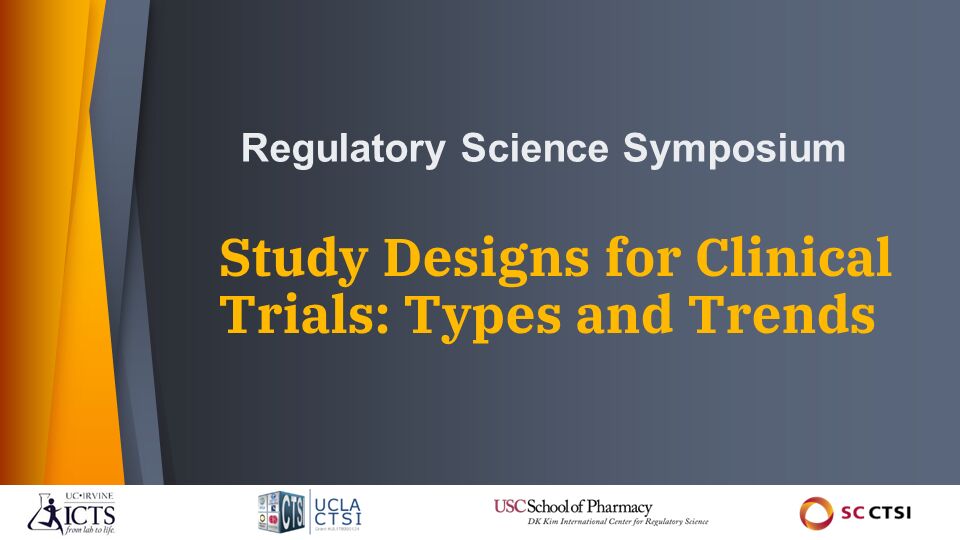- Thoughts on trends - Regulatory Perspective
- Clinical trial population variety
- Medical device trials
- Clinical/statistical issues-Surrogate endpoints for accelerated approval
- CT Diversity Plans
- Food and Drug Omnibus Reform Act (FDORA) additions:
- Subsection 505(z)
- Requires sponsors of any phase 3 or other pivotal drug study to submit diversity action plans
- Subsection 520(g)(9)
- Must submit a Diversity Action Plan for sponsors of device trials that require an Investigational Drug Exception (IDE)
- Subsection 505(z)
- Recommended Content
- Overview of disease/condition
- Scope of medical product development
- Goals for enrollment of under-represented racial and ethnic populations
- Specific plan to enroll and retain underrepresented diverse participants
- Status of meeting enrollment goals (if applicable)
- CTs for Medical Devices
- Upon a search of interventional trials in the United States in ClinicalTrials.gov, there were over 20,000 medical device trials
- Digital health
- Mobile Health
- Health information technology (IT)
- Wearable devices
- Telehealth/telemedicine & personalized medicine
- Clinical decisions support software
- AI/ML
- Computing platforms, software, etc.
- Companion diagnostics
- Center for Devices and Radiological Health (CDRH) Guidance re: Software
- Addresses the types of software
- Four criteria
- Surrogate Endpoints
- An endpoint that is a substitute, or “surrogate”, for the outcome you want to study
- Use of surrogate endpoints instead of clinical outcomes in some clinical trials
- Clinical outcomes directly measure whether people in a trial feel or function better or live longer
- Questions/comments?
- Food and Drug Omnibus Reform Act (FDORA) additions:
Regulatory Science Virtual Symposium: “Study Design for Clinical Trials: Types and Trends” Session 4: Types and Trends (2023)
Course Syllabus/Topics
Acknowledgments
Accompanying text created by Roxy Terteryan, RKS Project Administrator, SC CTSI (atertery@usc.edu) and Cyan Tan, Student Worker
